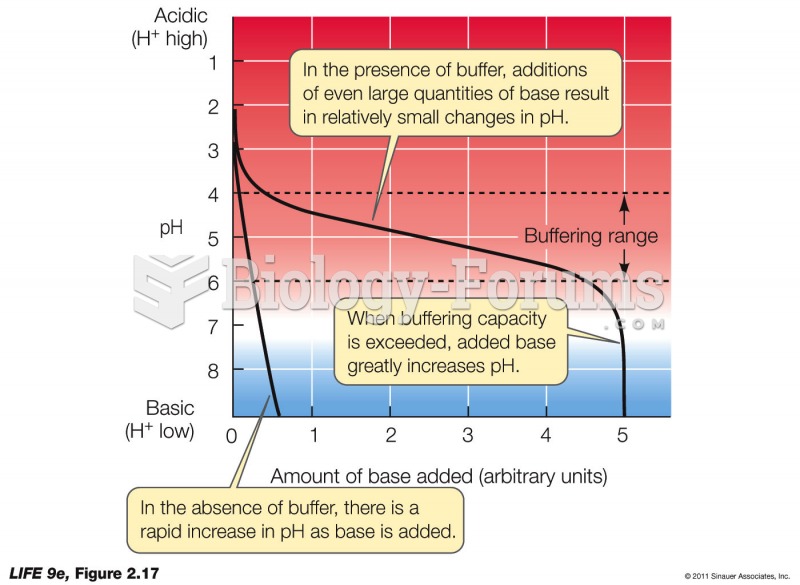|
|
|
The first oncogene was discovered in 1970 and was termed SRC (pronounced "SARK").
More than 34,000 trademarked medication names and more than 10,000 generic medication names are in use in the United States.
Most strokes are caused when blood clots move to a blood vessel in the brain and block blood flow to that area. Thrombolytic therapy can be used to dissolve the clot quickly. If given within 3 hours of the first stroke symptoms, this therapy can help limit stroke damage and disability.
The heart is located in the center of the chest, with part of it tipped slightly so that it taps against the left side of the chest.
The first war in which wide-scale use of anesthetics occurred was the Civil War, and 80% of all wounds were in the extremities.







